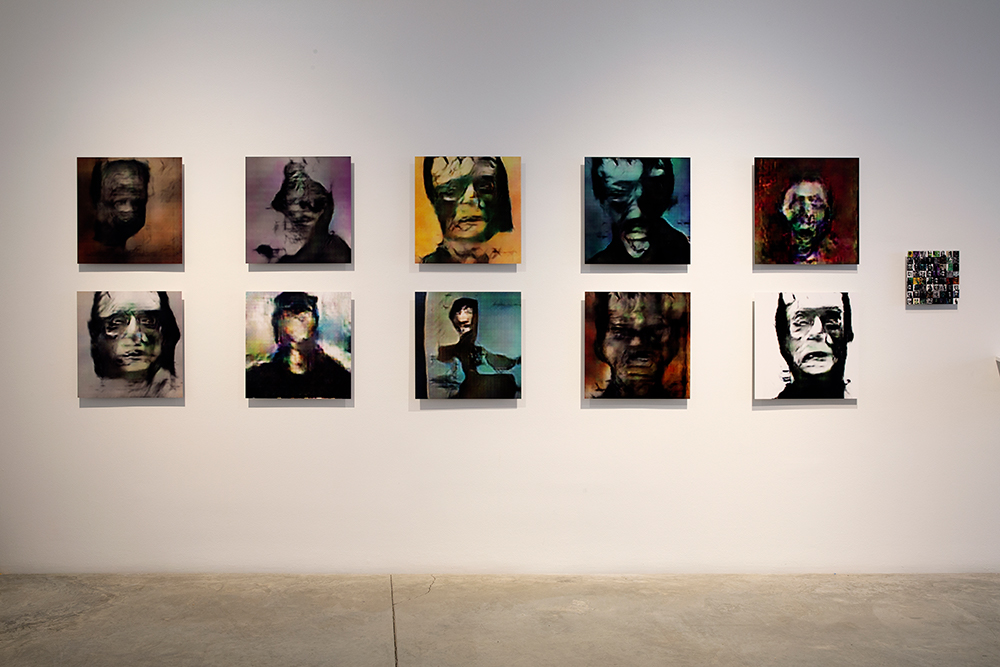
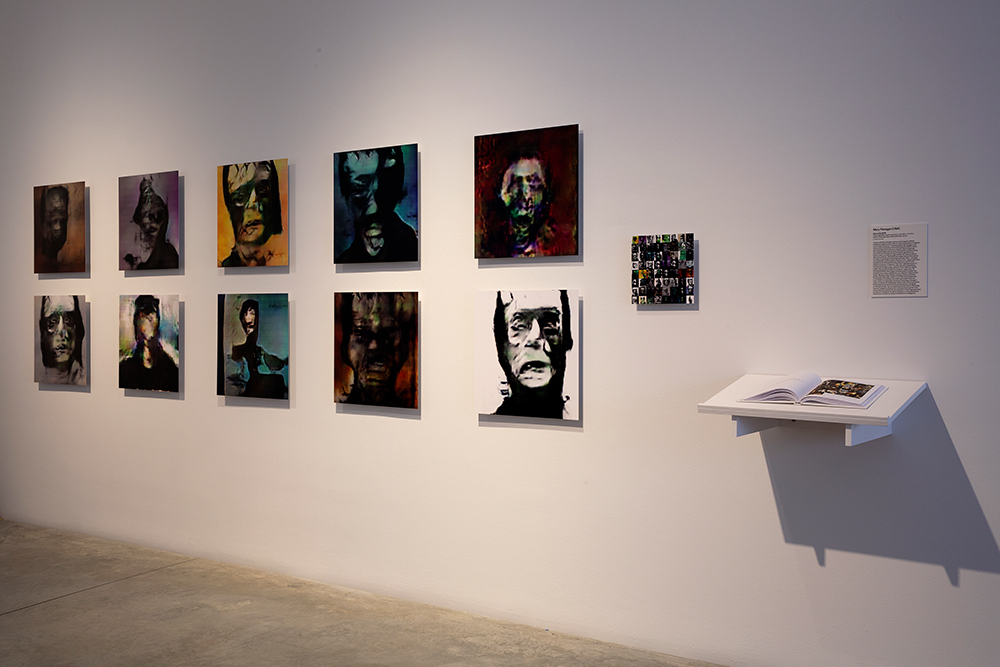
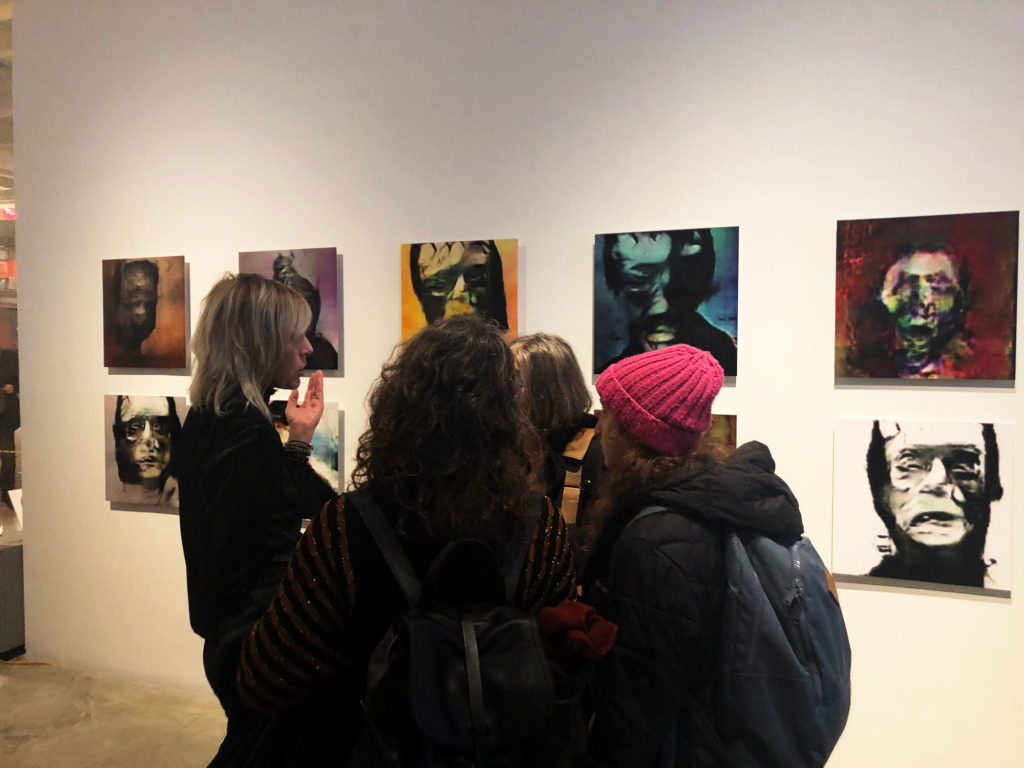

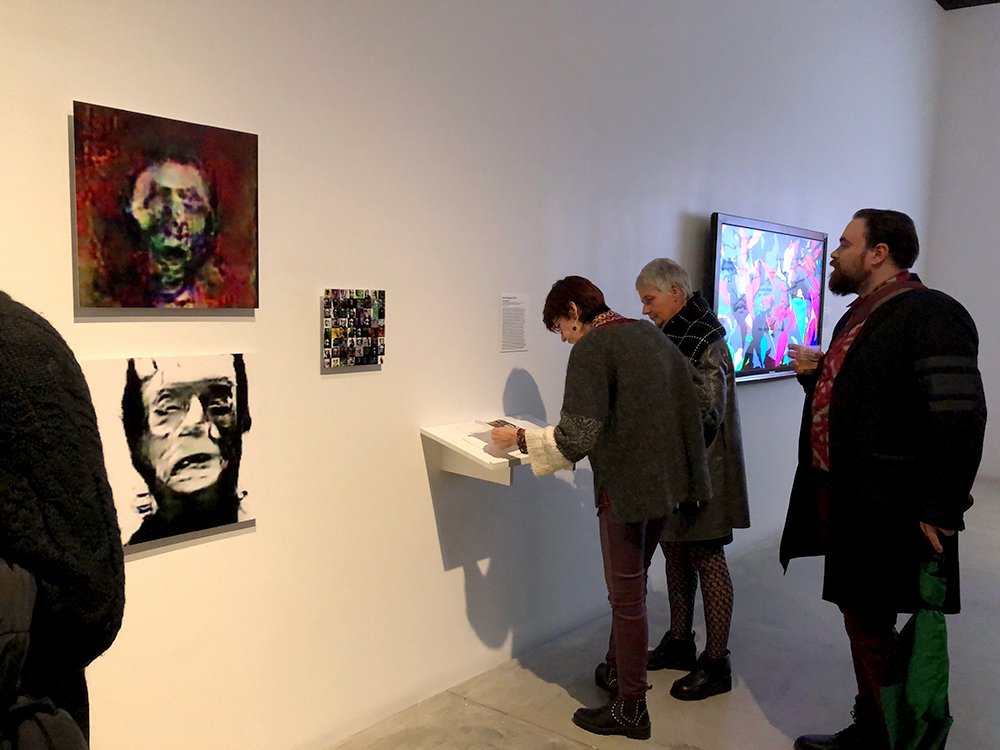
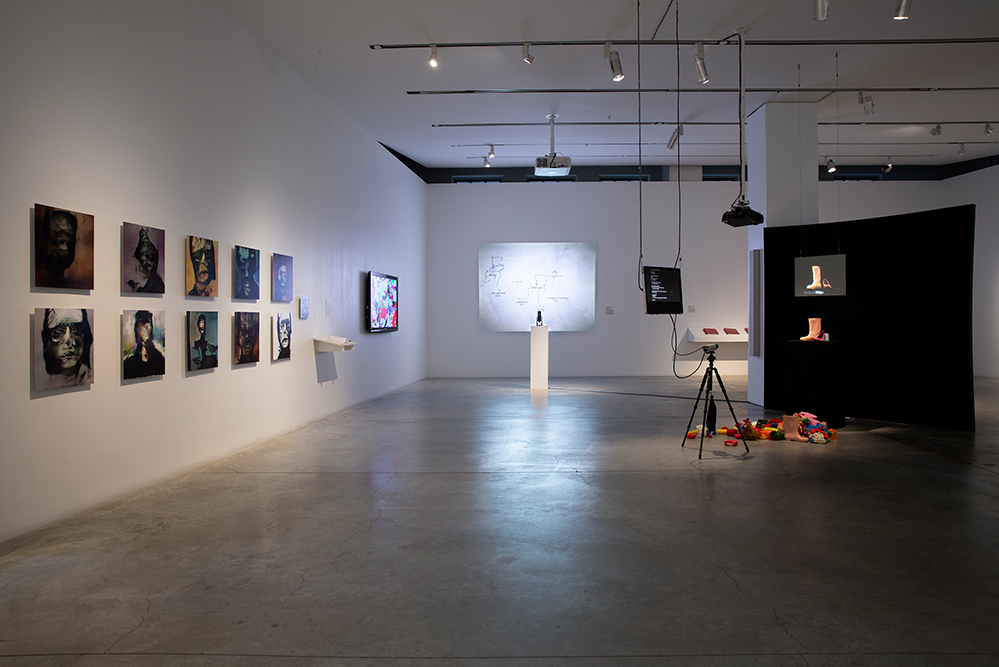
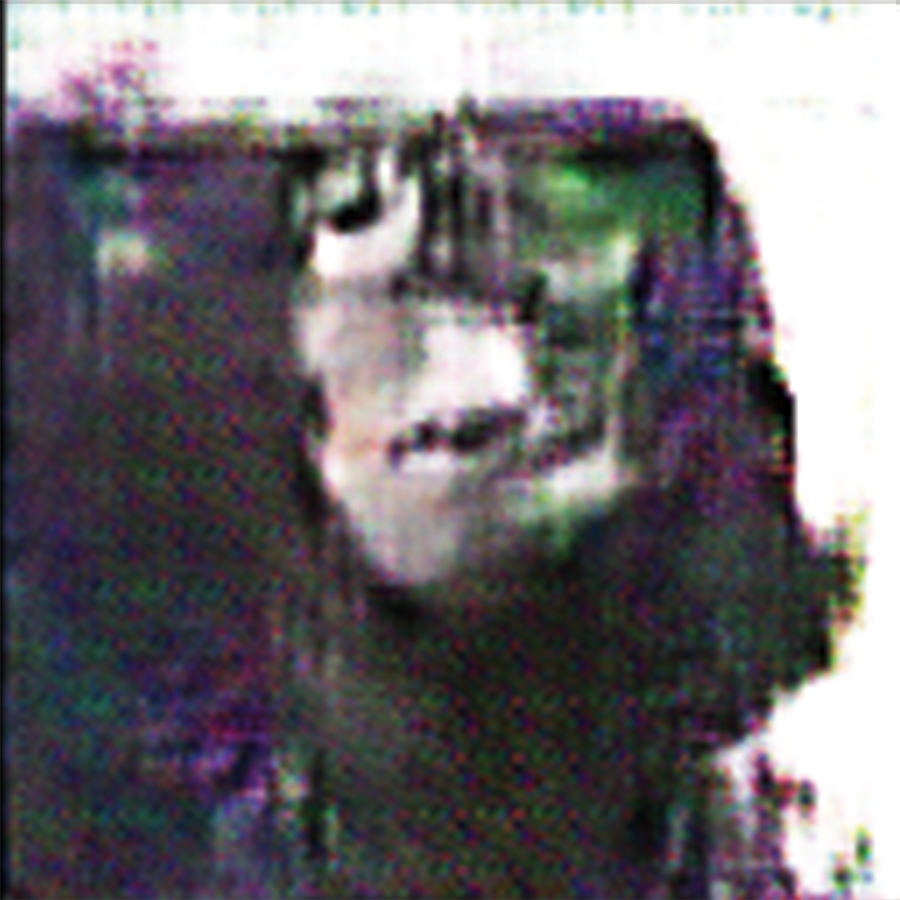
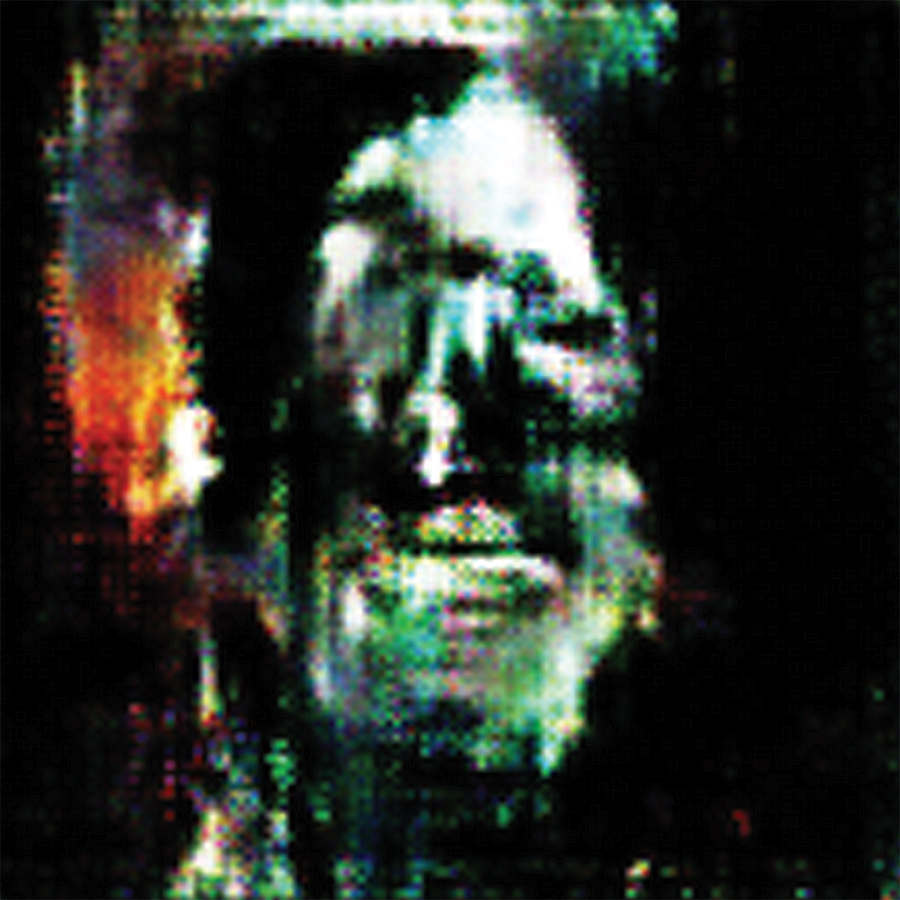
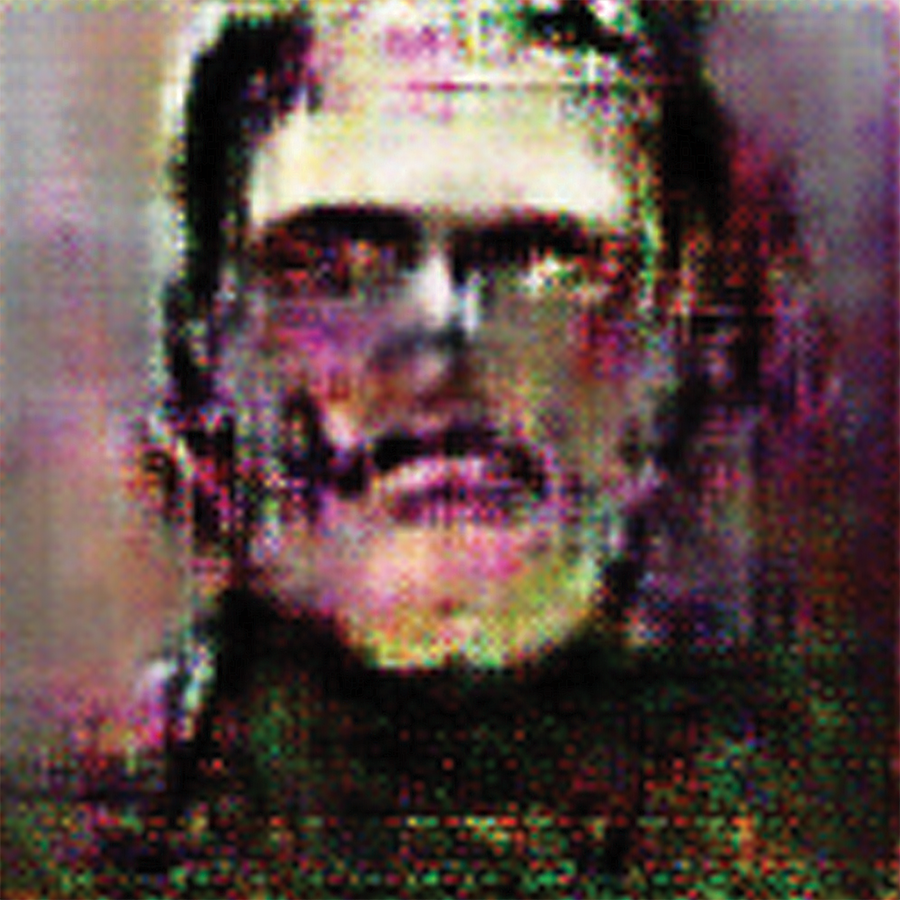
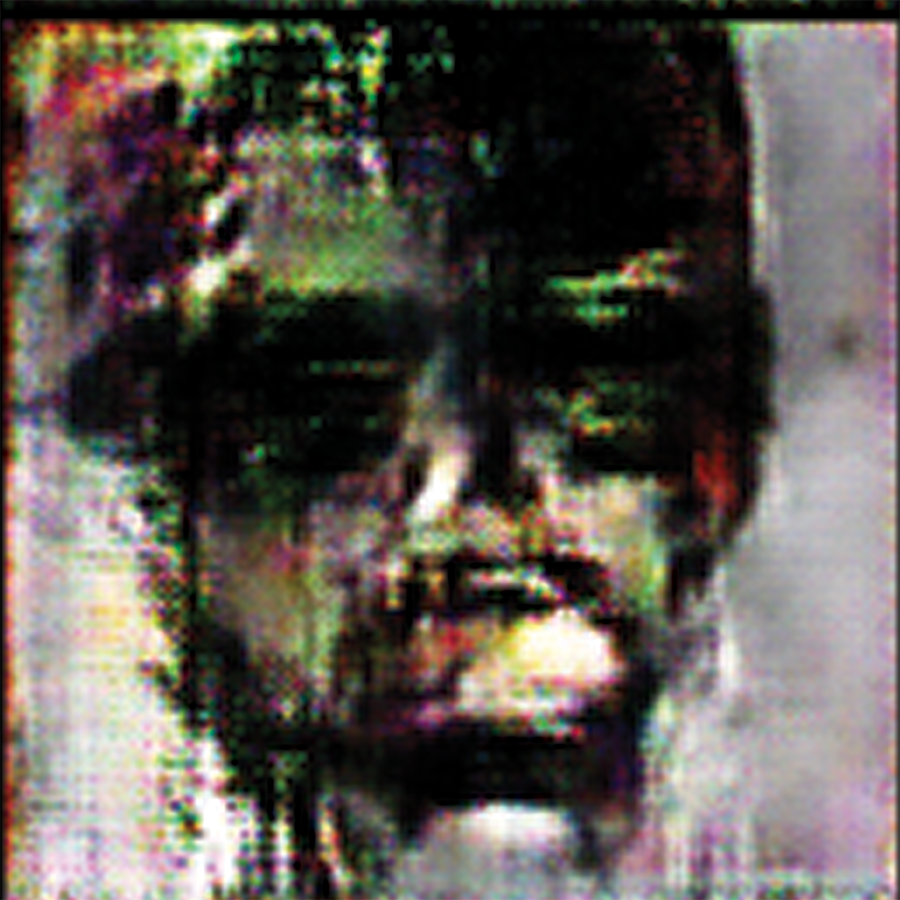
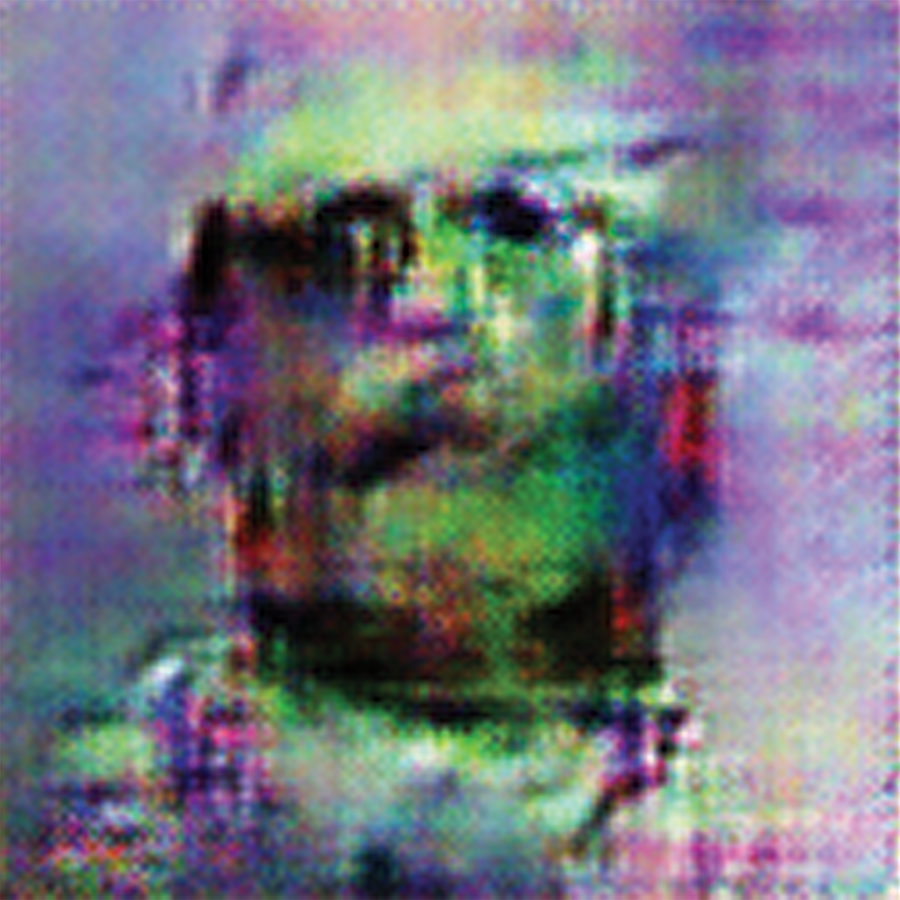
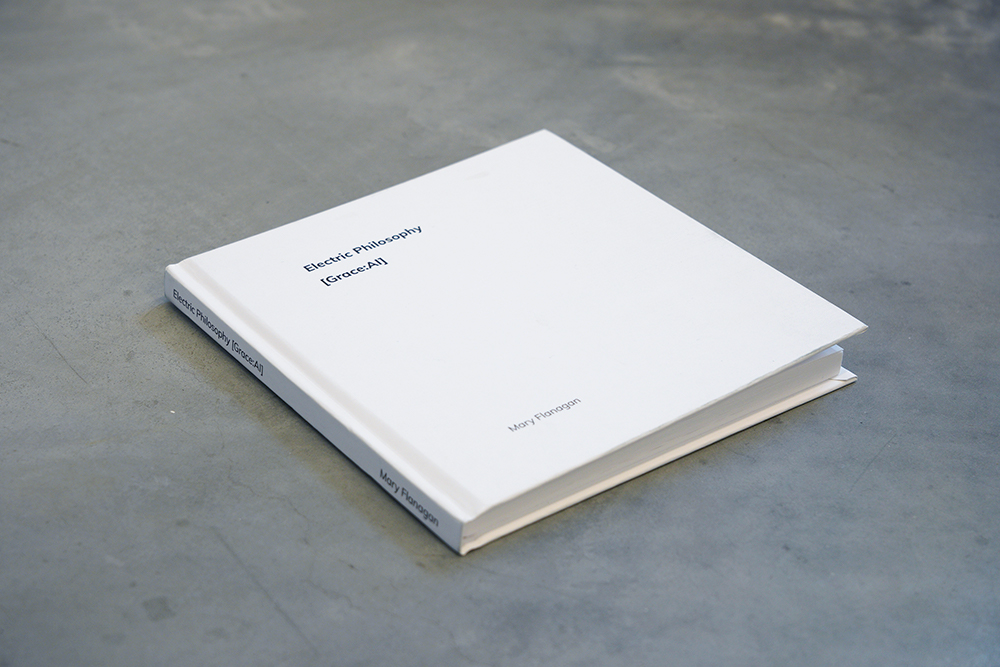
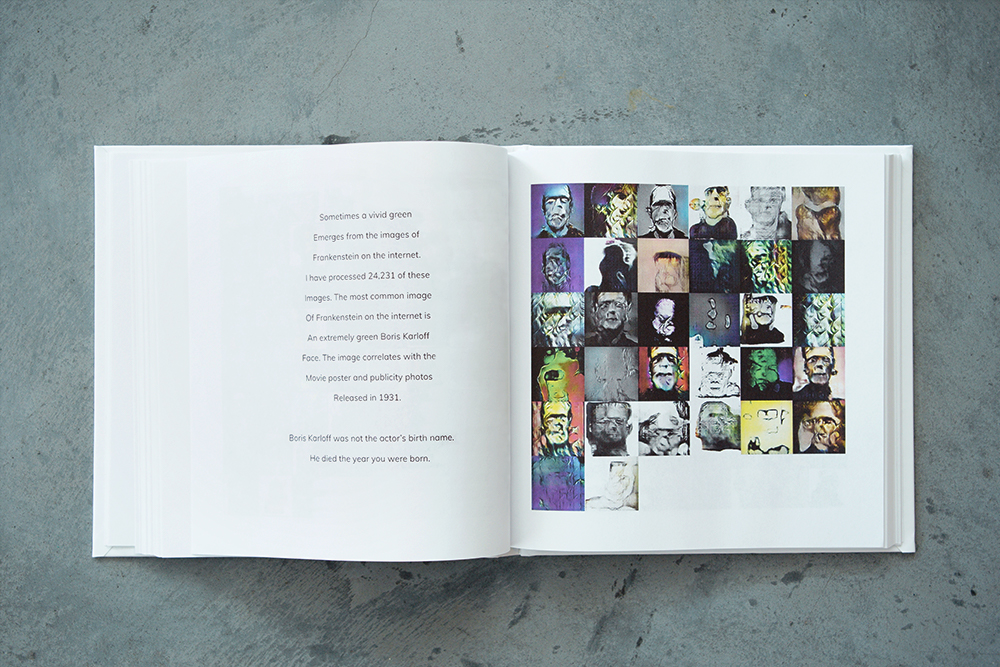
Videos
[Grace:AI] – Origin Story
Dye Sublimation on Aluminum
20″ x 20″
50.8cm x 50.8cm
2019
What happens when a machine learning algorithm for image creation is trained to “see” only on images of the work created by women artists? [Grace:AI] employs a Deep Convolutional General Adversarial Network and is trained to “see” from a dataset of tens of thousands of paintings and drawings by women artists from countries ranging from Korea to Greece to Argentina to Nigeria who worked or work in the male-dominated art world. These are unseen artists — there is no complete global resource for women’s art, and most museum collections have woefully unequal gender representation. Thus the training aims to create a woman focused, even feminist, approach.
In this series, [Grace:AI] is given the task of creating her origin story, and here I look to Mary Shelley, the most influential inventor of speculative fiction. Her 200-year-old critique of creation via technology, Frankenstein, fortells the Promethean violence of the Anthropocene.
[Grace:AI] looks at thousands of images of the Frankenstein monster and produces her own images of this “father figure.”
The seduction of the “possible,” and the narcissistic act of humans defying natural limitations, can have terrific consequence. “None but those who have experienced them can conceive of the enticements of science,” Shelley presciently wrote. But after the monster awakens, Frankenstein admits of his creation, “I had desired it with an ardor that far exceeded moderation; but now that I had finished, the beauty of the dream vanished, and breathless horror and disgust filled my heart.”
Artificial Intelligence (AI) and its intersection with the world is overwhelmingly dominated by males. Indeed, women and people of color are left out of the conversation in the making, the structuring, the producing of the code, and of the creations that AI can engender. Bias, whether it emerges through tags, who is inputting data, collections of data, or code itself, runs rampant in technical tools.
Thanks to generous institutions, I’ve been given access to some important collections including the National Museum of Women in the Arts, the University of Indiana, and the Met in NYC.
[Grace:AI] – Origin Story (Frankenstein) had its American premiere in “A Question of Intelligence: AI and the Future of Humanity” at Parsons, NYC curated by Christiane Paul in 2020.
[Grace:AI] has also provoked a book, called Electric Philosophy, that accompanies the exhibition. The book is written from the perspective of [Grace:AI] as she delves into philosophical topics such as being and knowledge.
In the next phase, [Grace:AI] will paint original images of daydreaming, women and women’s bodies, anthropocenic landscapes and more. She is also painting portraits.
Collections of images were generously shared for the training data by the National Museum of Women in the Arts and Indiana University’s A Space of Their Own database as part of the Eskenazi Museum of Art. This project was initially supported by the Leslie Center for the Humanities at Dartmouth College.
Exhibitions
- “The Question of Intelligence” Anna-Maria & Stephen Kellen Gallery, The Sheila C. Johnson Design Center at Parsons, New York, NY, February – March 2020
- “Children of Prometheus,” NeMe Arts Centre, Cyprus, October 2019
Press
- Xiao, Tansy. “The Question of Intelligence — AI and the Future of Humanity” Interview with Curator Christiane Paul,” ARTEFUSE, 5 May 2020.
- Chatel, Marie. “Discussing “The Question of Intelligence” with Curator Christiane Paul,” Digicult, April 2020.
- Press release. “The Question of Intelligence,” The New School, January 2020.
Special thanks
Special thanks to Jared Segal, Sukie Punjasthitkul, Spring Yu and Danielle Taylor for their outstanding help and to Marc Garrett, who first curated [Grace:AI] at the NeMe Arts Center in Cyprus as part of the “Children of Prometheus” exhibition in 2019. Thank you to Christiane Paul who curated [Grace:AI] at the Kellen Gallery, The New School/Parsons, in the “Question of Intelligence” show in 2020. Thanks to Dartmouth College, Leslie Center for the Humanities, and the Sherman Fairchild Chair in Digital Humanities which supported this project.